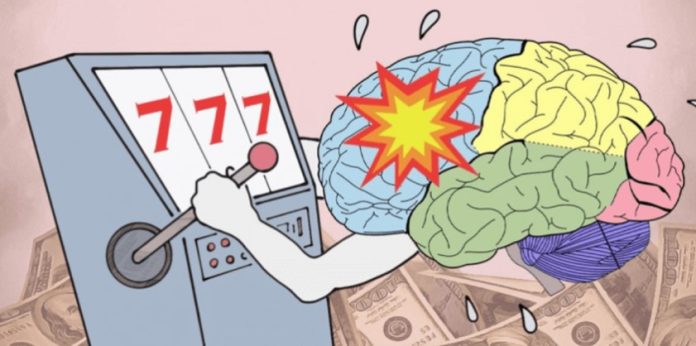In the digital age, gambling has transcended traditional boundaries, with online casinos like 4Rabet offering unprecedented access to a wide array of betting options. As individuals engage with these platforms, the interplay between neuroscience and gambling becomes increasingly relevant, shaping our understanding of the brain’s response to risk and reward. Through the lens of neuroscience, we delve into the intricate mechanisms that govern gambling decisions, shedding light on both the allure and the pitfalls of wagering.
4Rabet stands out as a prominent player in the online gambling landscape, captivating users with its intuitive interface and diverse betting opportunities. As players navigate through the casino’s offerings, their brains undergo a complex interplay of neural processes, driven by the anticipation of rewards and the allure of chance. Understanding this neural dance is key to unraveling the mysteries of gambling behavior and its impact on individuals.
The Neuroscience of Gambling
Neuroscience delves into the inner workings of the brain, seeking to unravel the neural underpinnings of behavior and cognition. When it comes to gambling, researchers explore a multitude of factors, including reward processing, decision-making, impulsivity, and risk assessment. Through advanced imaging techniques such as fMRI and EEG, scientists peer into the brain’s activity, unveiling the neural signatures associated with gambling behavior.
The Role of Dopamine
Central to the neuroscience of gambling is dopamine, a neurotransmitter known for its role in the brain’s reward system. When individuals gamble and experience a win, dopamine levels surge, eliciting feelings of pleasure and reinforcement. This dopamine-driven reward pathway reinforces gambling behavior, fueling the cycle of risk-taking and reward-seeking. However, the same mechanism can also underlie addictive tendencies, as individuals chase the elusive thrill of victory in pursuit of dopamine-fueled gratification.
Decision-Making Under Risk and Uncertainty
At the core of gambling decisions lies the delicate balance between risk and reward, where individuals must navigate uncertain outcomes in pursuit of potential gains. Neuroscience research has revealed the intricate neural processes underlying decision-making in these high-stakes scenarios. From cognitive biases to emotional responses, the brain weighs various factors to arrive at a choice, often influenced by a complex interplay of neural circuits.
Impulsivity and Self-Control

Impulsivity and self-control play pivotal roles in shaping gambling behavior, reflecting individual differences in the ability to resist immediate temptations and exert self-regulation. Neuroscientific investigations have uncovered distinct neural signatures associated with impulsivity and self-control, shedding light on the underlying mechanisms of these traits. Understanding the neural basis of impulsivity and self-control holds promise for developing targeted interventions aimed at mitigating problem gambling behaviors.
Neurobiological Basis of Addiction
Problem gambling shares commonalities with substance addiction at the neurobiological level, with alterations in brain structure and function contributing to addictive behaviors. Through neuroimaging studies and neurochemical analyses, researchers have identified disruptions in reward circuitry and neurotransmitter systems in individuals with gambling disorder. These neurobiological changes underscore the complex nature of addiction and highlight the need for comprehensive treatment approaches that address both the behavioral and neurobiological aspects of addiction.
The Implications: Towards Responsible Gambling
Understanding the neural basis of gambling behavior can have significant implications for promoting responsible gambling practices. Here are some potential applications:
- Developing Screening Tools: Brain imaging or other neurological markers could potentially be used to identify individuals at risk for developing a gambling addiction, allowing for early intervention and treatment.
- Designing Treatment Programs: By understanding the specific brain regions and pathways involved in problem gambling, researchers can develop more targeted therapeutic interventions to address the underlying neurological mechanisms.
- Personalized Approaches: Tailoring treatment plans to individual differences in brain structure, genes, and personality traits could improve treatment outcomes.
- Public Awareness Campaigns: Neuroscience findings can be used to create educational campaigns that raise awareness about the brain’s response to gambling and promote informed decision-making.
The Future of Gambling and the Brain
Neuroscience research on gambling is still in its early stages, but it holds immense promise for the future. As technology advances, we may see the development of new tools that can monitor brain activity in real-time to identify gambling urges or potentially even regulate gambling behavior. Additionally, a deeper understanding of the brain mechanisms involved in responsible gambling practices could inform the design of safer and more controlled gambling environments.
The intersection of neuroscience and gambling provides a fascinating glimpse into the inner workings of the human brain and its response to risk and reward. As we unravel the mysteries of the brain on bets, we gain valuable insights into the cognitive, emotional, and neural processes that underpin gambling decisions. By harnessing the power of neuroscience, we can develop more effective strategies for preventing problem gambling and supporting individuals affected by gambling disorder. As the field continues to advance, so too will our understanding of the brain’s complex relationship with gambling, paving the way for a safer and more responsible gambling environment.
Disclaimer: Playing online games involves an element of financial risk and may be addictive. Please play responsibly and at your own risk.
Also Read: Navigating TopX user-centric design


